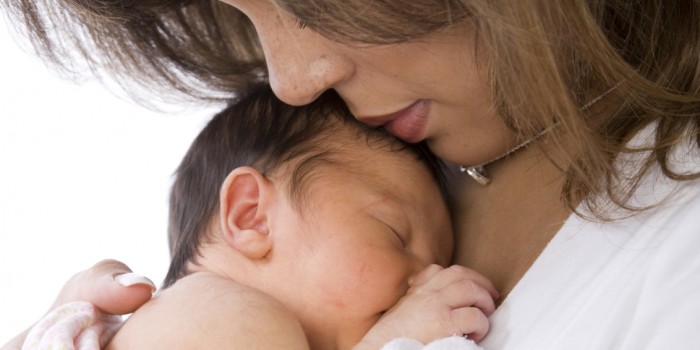Posted on January 20, 2016 by Kim Laube
Adoption

Share
Other Blog Topics
This fear is not as easily addressed mostly because pre-adoptive families don’t even want to admit that the fear exists. Just saying it can make you feel like a heartless person. I wish pre-adoptive families felt more open to talking about this than they do. Why? Because there are many paths that can lead to the same positive outcome. We do not all experience circumstances in the same way.
So, for many adoptive parents (this one included) we would tell you that our love for our adoptive child was immediate, fierce and every bit as meaningful and deep as our love for our biological child. I recall falling in love with just a picture of the child that the Russian authorities were offering to my husband and me. The love was intense, immediate and I wanted to do anything I could to protect her and get her home to us as quickly as possible.
I’ve learned over my years of experience working in adoption that my experience is not the only way, nor is it the only “right” way for a loving relationship to occur with an adopted child. There have been courageous adoptive parents that have helped me to see that falling in love with a child, a child who has a whole myriad of experience prior to you meeting her, can take time and may require dedication and persistence. One adoptive mother told me at our 3 month post adoptive visit, “Yes, I have love for this child, but am I in love with her? No, not yet, but we are working on that. I am just learning who she is.”
Over the months to come we talked about what “working on falling in love with a child” looks like. We focused on the relentless persistence to stay in relationship with that child; intentionally spending time with her and interacting with her in activities that allowed her to be nurtured.
The age of a child can certainly have an impact on the initial relationship between the child and the adoptive couple. For example, an older child placed in an adoptive home will have years of experiences that his adoptive family will not have experienced with him. Because his life experiences are a mystery to the family, it may be harder to relate. All the changes he is experiencing while initially in your care can be overwhelming to him causing his behavior to be less than becoming. When a child is older, they also naturally want some independence and may not allow his adoptive parents to care for or nurture him. And, it should be noted that we have no expectation that the child will immediately fall in love with the family his social workers have assigned him! We give him time to learn to trust and to love his adoptive parents. The adoptive parents, on all accounts, should be given the same opportunity to learn how to fall in love with this child!
When a family adopts a newborn child, the love relationship may be, but not always, more immediate because of the nature of the situation. The newborn will be completely dependent and the adoptive parents are allowed to do all the normal bonding activities such as feeding, holding, singing and rocking. A newborn does not resist these care giving activities that helps bonds us to our children.
There are many terrific books written about bonding with an adoptive child, and I suggest you read them, go to trainings and watch videos. This blogs main point is: Yes, it is absolutely possible to love a child who is adopted as much as or as much as you would have your biological child. For some, it is immediate, for others it takes persistence to get to the point of having “fallen in love” with your adopted child. We need to accept that the experience will be different for all of us, it is the dedication and desire to have the experience of falling in love with an adoptive child that is important!
More posts about Adoption